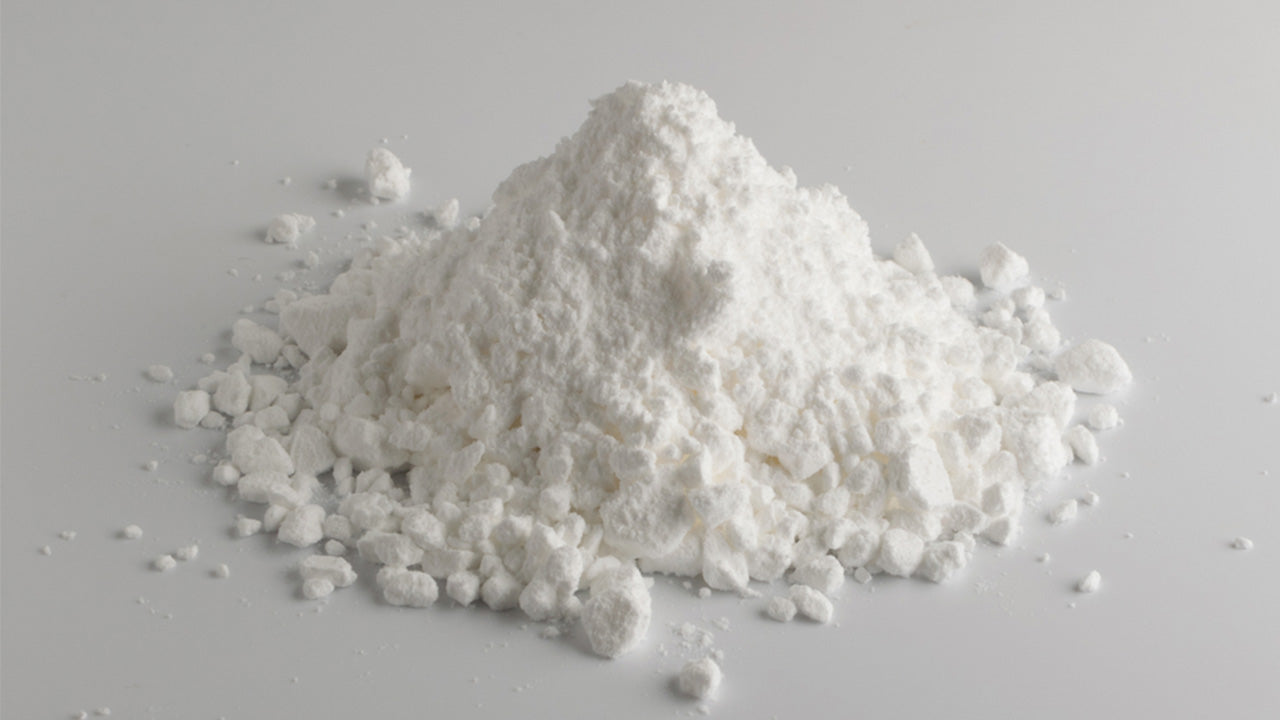What Is Adrenal Fatigue: Symptoms, Causes and Recovery
 By: by Amino Science
By: by Amino Science

Adrenal fatigue is a term that's being tossed around frequently in wellness circles. But just what is adrenal fatigue?
If you’re experiencing body aches, sleep disturbances, exhaustion, and other symptoms affecting your quality of life, you might be suffering from a condition known as adrenal fatigue. Referring to a group of self-reported symptoms not linked to an underlying cause that affect a patient’s health and wellness, adrenal fatigue is not currently a recognized medical condition; however, it’s becoming an increasingly common diagnosis in alternative medicine circles. Understanding adrenal fatigue causes—and what you can do to alleviate the condition symptoms—is key to achieving long-term adrenal fatigue recovery.
What Is Adrenal Fatigue?
According to the Mayo Clinic, adrenal fatigue may be related to a more serious condition known as adrenal insufficiency. Adrenal insufficiency occurs when the adrenal glands produce an inadequate supply of certain hormones due to an underlying disease.
Your adrenals are two small glands that rest on top of your kidneys and produce hormones such as cortisol as part of an immune system response to stress and to regulate metabolism. When your body is in a state of stress, your adrenal glands release cortisol and other stress hormones into your bloodstream. If you are perpetually stressed, then the adrenals get "fatigued," resulting in low cortisol levels.
Patients suffering from adrenal insufficiency can experience a number of symptoms, including fatigue, body aches, sudden or unexplained weight loss, low blood pressure, lightheadedness, body hair loss, decreased sex drive, and skin discoloration. Believed by many to be a less-severe version of adrenal insufficiency, adrenal fatigue can still wreak havoc on patients’ lives.
The theory behind adrenal fatigue is that chronic stress can lead to a milder form of adrenal insufficiency. As stress and anxiety force the individual into a perpetual state of fight-or-flight arousal, the body fails to produce the requisite amount of hormones. Because the decline in adrenal function is relatively small, traditional blood tests can’t always detect it. As a result, adrenal fatigue sufferers are often deprived of the medical care and treatment they need to feel better.
Identifying Adrenal Fatigue Symptoms
According to the author of a 2014 article published in Advances in Integrative Medicine, adrenal fatigue is indeed a common stress disorder with potentially serious effects. And though the condition has appeared in the literature for more than a century, medical professionals are just now starting to recognize its significance. The study further suggests that doctors should regularly monitor patients for the following signs and symptoms of adrenal fatigue:
- Exhaustion, particularly in the early morning hours
- A mid-morning “low” in energy
- An afternoon “low” between 2 pm and 5 pm
- Improved energy in the evenings and late at night
According to the study, 85% of patients reported that fatigue was a major symptom of their condition. Eighteen percent of participants reported requiring caffeine to get through the morning, and many said they didn’t feel fully awake until after they’d eaten lunch.
Other symptoms of adrenal fatigue include insomnia, anxiety, fuzzy thinking or brain fog, weight gain, and irritability. If you’re experiencing one or more of these symptoms on a regular basis, don’t hesitate to seek medical attention.
Your health care provider will test for adrenal insufficiency using blood tests or salivary cortisol testing to measure levels of adrenal hormones.

Adrenal Fatigue Causes
Attributing adrenal fatigue to a single cause is no easy task. According to the Advances in Integrative Medicine study, the condition most commonly results from chronic or severe stress. As patients suffer an increase in stress, the adrenal glands compensate in an attempt to maintain homeostasis. Many of the study participants developed adrenal fatigue following a life-changing event, such as a serious motor vehicle accident, divorce, job loss, or other emotional trauma. Additionally, the study’s author found that the following groups were more likely to experience adrenal fatigue than their peers:
- Doctors, nurses, and caregivers
- Social workers
- Police
- Lawyers
- People who are self-employed or who hold two jobs
- Single parents
Is Adrenal Fatigue a Myth?
Adrenal fatigue is a term coined by naturopath and chiropractor James Wilson in 1998, and is a popular catch-phrase for symptoms sustained during prolonged periods of physical, mental, and emotional stress. It's important to note, however, that while adrenal fatigue is recognized as a diagnosis in certain alternative wellness circles, such as by functional medicine practitioners, it doesn't get the same respect from the traditional medical establishment.
In fact, the Endocrine Society's official position on adrenal fatigue is as follows: "No scientific proof exists to support adrenal fatigue as a true medical condition. Doctors are concerned that if you are told you have this condition, the real cause of your symptoms may not be found and treated correctly. Also, treatment for adrenal fatigue may be expensive, since insurance companies are unlikely to cover the costs."
Recognized Adrenal Disorders
While adrenal fatigue may not be a recognized adrenal disorder, your symptoms could be connected to one of the following endocrine disorders.
Adrenal Insufficiency
As mentioned previously, adrenal fatigue is considered a milder form of adrenal insufficiency caused by the adrenal glands not releasing enough hormones into the bloodstream, particularly cortisol. Adrenal insufficiency symptoms include:
| Persistant or chronic fatigue | Weak muscles |
| Joint pain | Weight loss |
| Appetite reduction | Stomach pain |
| Diarrhea | Nausea |
| Low blood pressure | Mood swings |
| Depression | Salt cravings |
| Hypoglycemia | Headaches |
| Extreme sweating | Irregular periods |
Adrenal Tumors
Adrenal tumors can be benign, meaning they don't cause cancer but can still lead to uncomfortable symptoms and be potentially dangerous, or malignant and cancer-causing. They are also classified as non-functioning or functioning, with the later causing overproduction of one or more adrenal hormones.
Addison's Disease
This type of adrenal insufficiency occurs when the adrenal glands stop producing an adequate amount of cortisol and in some cases too little of the mineralocorticoid aldosterone as well. Signs of Addison's disease include weakness, abdominal pain, and increased skin pigment. A shortage of cortisol can be dangerous, because cortisol helps to control blood pressure and blood sugar balance.
Congenital Adrenal Hyperplasia
Congenital adrenal hyperplasia is a family of inherited genetic disorders that disrupts the production of one or more of the three steroid hormones—cortisol, mineralocorticoids, or androgens—responsible for regulating metabolism, the stress response, sodium and potassium levels, and blood pressure among other vital bodily functions.
X-Linked Adrenoleukodystrophy
This genetic disorder damages the myelin sheaths that surround nerves in the brain and spinal cord, causing long-chain fatty acids to build up in the brain and adrenal glands and resulting in adrenal insufficiency.
Cushing's Disease
An adenoma, a benign tumor on the pituitary gland, is the primary cause of Cushing's disease. The pituitary gland produces too much adrenocorticotropic hormone (ACTH), increasing cortisol levels.
Hyperaldosteronism
When the adrenal glands rev up production of aldosterone, high blood pressure and low blood potassium levels can occur. It can cause hyperactivity in one or both adrenal glands.
Hypoaldosteronism
With hypoaldosteronism, the adrenal glands skimp on the production of aldosterone, which lowers sodium levels, increases potassium levels in the blood and can cause the body to make too much acid, as well as lower blood pressure.
Treating Adrenal Fatigue
Patients who have an adrenal fatigue diagnosis or who think they might be suffering from this condition or another adrenal disorder should know that help is available. In fact, medical practitioners are already using a number of treatments to help adrenal fatigue patients and alleviate the long-term stress that can cause the issue. Many of the most popular therapies focus on lifestyle modifications designed to reduce stress levels and improve wellness. Some adrenal fatigue patients experience improvement by adopting stress management techniques, making dietary adjustments, and taking nutritional supplements.
Recently, medical experts have begun to use amino acids and other adrenal support supplements to alleviate fatigue and other disabling symptoms of this condition. According to the Advances in Integrative Medicine study, the above techniques achieve positive results for 80% to 90% of patients with the condition.
Adrenal fatigue patients can take immediate steps to improve their quality of life. Author of Adrenal Fatigue: The 21st Century Stress Syndrome, Dr. James Wilson, acknowledges that chronic physical, mental, or emotional stress can all affect the body’s ability to function as intended. Further, he recommends following the adrenal fatigue diet, which involves removing foods that are hard to digest as well as those that tax the adrenal system. Caffeine, sugar, artificial sweeteners, and carb-heavy foods can all have a negative effect on the adrenal system. Patients should also avoid processed meats and hydrogenated oils, replacing them with olive oil and coconut oil whenever possible.
You don’t have to suffer adrenal fatigue in silence. If you’re experiencing fatigue and other symptoms that affect your quality of life, don’t hesitate to contact a medical professional for information on how to relieve adrenal fatigue and start enjoying life to the fullest again.
To find out how amino acid support can help reverse and treat adrenal fatigue, click here.

Up to 25% off Amino
Shop NowTAGS: conditions
Join the Community
Comments (0)
Most Craveable Recipes




 833-264-6620
833-264-6620



















